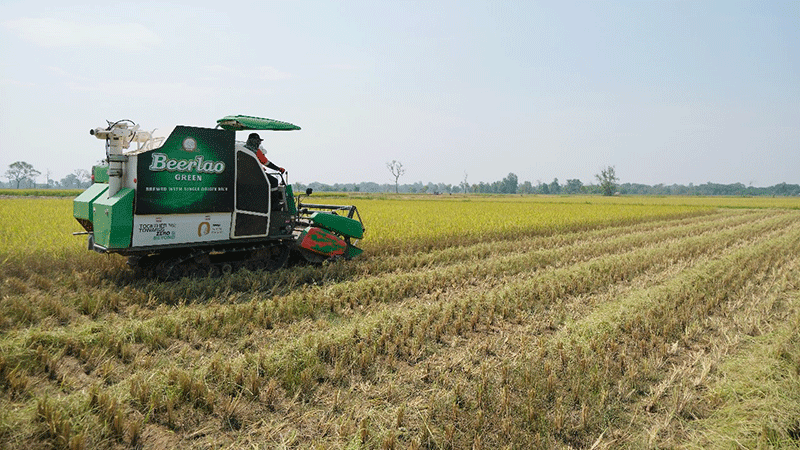 |
| Innovative equipment is being used for rice harvesting to reduce labour and save time. |
Laos-China agricultural experts visit LBC’s sustainable rice farming project
A gricultural experts from Laos and China recently visited Lao Brewery Company Limited’s (LBC) Sustainable Rice Farming Project in Makhiew village, Pakngum district, Vientiane, to observe organic rice harvesting and assess progress in sustainable farming.
The visit, which took place in April, included specialists from the Ministry of Agriculture and Forestry, the Vientiane Department of Agriculture and Forestry, and a delegation from the Guangxi Academy of Agricultural Sciences in China.
The team monitored rice yields on a 15-hectare organic farm, which forms part of LBC’s long-term effort to promote eco-friendly agriculture and productive rice cultivation.
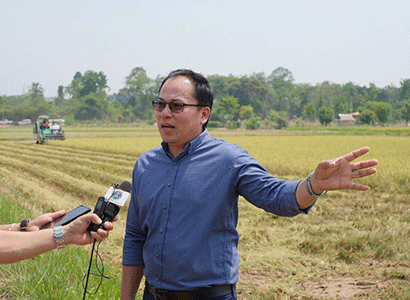 |
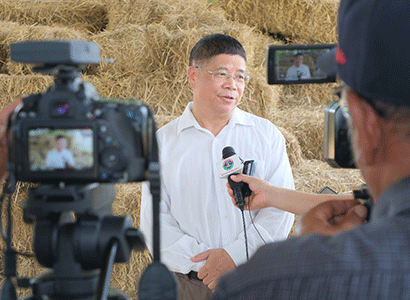 |
| Mr Zaeth Khamnon talks about the organic rice harvest at (LBC) Sustainable Rice Farming Project in Makhiew village. |
Dr Qi-Zhan Tang shares insights following a visit to the organic rice harvest site at Makhiew village. |
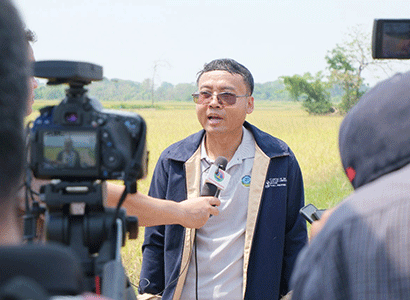 |
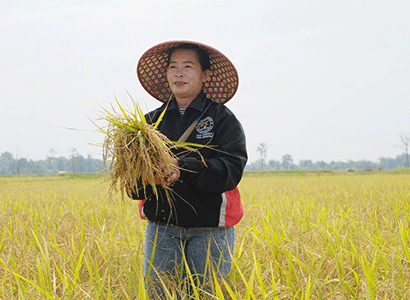 |
| Mr Xaysathith Souliyavongsa commends the project as a successful model for organic rice production. |
Officials from the Soil, Plants and Fertiliser Analysis Centre recently collect samples of organic rice from the Makhiew site for study. |
LBC’s Corporate Affairs and ESG Manager, Mr Zaeth Khamnon, said the project has been in operation for nine seasons, with the organic rice cultivation trial now in its fourth season.
“The use of organic fertiliser and close coordination with the Department of Agriculture Land Management and other relevant authorities has helped promote a balanced agricultural ecosystem,” he said.
Mr Zaeth noted that this was the second visit by the Chinese delegation, marking continued collaboration between the two countries. Last season’s harvest yielded 15 tonnes of organic rice. With the expansion of the cultivated area this season, the yield is expected to exceed 30 tonnes.
Mr Xaysathith Souliyavongsa, Head of the Soil, Plant and Fertiliser Analysis Centre under the Department of Agriculture Land Management, praised the project as a strong model for organic rice production.
“It is clear that LBC has taken a good initiative to transform organic rice into a viable commodity,” he said.
However, he noted the need for improvements, particularly in weed control and soil management. He added that new rice varieties are being introduced for testing to improve quality and yields.
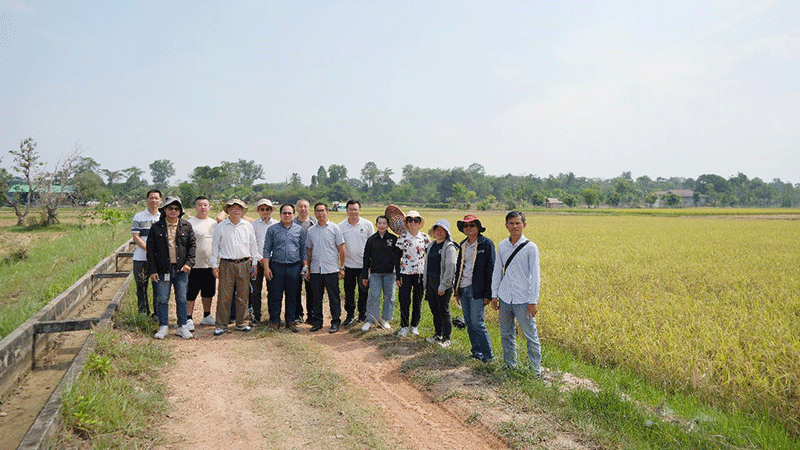 |
| Lao and Chinese officials join LBC representatives to visit the site and observe the organic rice harvest process recently. |
Ms Lathsami Xaysongdet, a specialist from the Vientiane Department of Agriculture and Forestry, said LBC has been supporting the entire production cycle.
“Before planting, we conduct soil analysis, calculate appropriate fertiliser use, and gather seasonal data to monitor yield trends,” she said.
She reported that last year’s average yield was 3.4 tonnes per hectare, with this year’s harvest projected to reach 4 tonnes per hectare.
Dr Qi-Zhan Tang, a delegate from the Guangxi Academy of Agricultural Sciences, shared several suggestions for improving organic practices after visiting the site, including the introduction of ducks to manage weeds naturally and the return of rice straw to the soil to boost potassium and organic content.
“This is a good project and a model for organic rice farming in Laos,” Dr Tang said.
The LBC Sustainable Rice Farming Project reflects the company’s commitment to environmental protection and community development. It aims to improve soil health, enhance biodiversity, reduce environmental impacts, and support farmers through job creation and stable incomes—advancing sustainable agriculture on a broader scale.
By Advertorial Desk
(Latest Update May 7, 2025)
|







